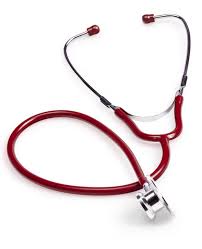Get benefit under section 80DD for medical expenses of disabled dependants
 The Income Tax Act, 1961 provides some special reliefs to the tax payers for the expenses incurred by them towards the medical treatment of their disabled dependants. Section 80DD of the Act deals with such benefits.
The Income Tax Act, 1961 provides some special reliefs to the tax payers for the expenses incurred by them towards the medical treatment of their disabled dependants. Section 80DD of the Act deals with such benefits.
Who is entitled to avail the benefit under section 80DD?
An individual or a Hindu undivided family, who is a resident in India, can get the benefit under section 80DD. But a non-resident cannot claim such benefit.
What are the expenses covered by the section?
The following expenses are covered by the section –
1. Expenses for the medical treatment and rehabilitation of a disabled dependent;
2. All sums paid to any insurance company such as Life Insurance Corporation (LIC), Unit Trust of India, etc. for purchasing specified scheme or insurance for maintaining such dependant.
Who is a relative?
For the purpose of this section the following persons are considered as disabled dependant:
1. The spouse, son or daughter, parents, brother or sister of a person can be his or her disabled dependants.
2. Any member of a HUF can be a disabled dependant of the HUF.
Conditions for availing the benefit:
1. The disabled person should be totally or mostly dependent upon the assessee for his or her support and maintenance,
2. The assessee should not have claimed deduction under the provisions of section 80U of the Income Tax Act.
Some conditions for the insurance premium:
1. All schemes do not qualify for such deduction. There are particular schemes for availing this benefit;
2. The policy should be in the name of the individual claiming such benefit;
3. The premium should be paid annually or as a lump sum amount for the benefit of the disabled;
4. The Nomination of Policy should be in the name of either the disabled dependant, or in the name of any other person who would receive the money for the benefit of your disabled dependant.
What is disability?
“Disability” for the purpose of this section is defined under section 2(i) of the “Persons with Disabilities (Equal Opportunities, Protection of Rights and Full Participation) Act, 1995”.
According to the section, “disability’ includes the following:
1. Blindness or low vision;
2. Leprosy;
3. Deafness;
4. Neurological disability;
5. Mental retardation or illness;
6. Autism;
7. Multiple disabilities;
A disabled person denotes a person suffering from at least 40% of any of the above disabilities.
What is Severe Disability?
Severe disability denotes at least 80% of the aforesaid disabilities.
Documents required for claiming such benefit:
For claiming the deduction under section 80DD one is required to furnish a medical disability certificate from a Government Hospital regarding the disability of the dependant and the same should be renewed periodically.
For people with Autism, Cerebral Palsy, etc. a specified form has to be filled up. An individual should furnish a declaration stating the expenses incurred by him or her for the purpose of the medical treatment as well as nursing of the handicapped dependant.
An individual is required to produce the actual receipts for claiming deduction for payment made to LIC, UTI etc. for purchasing insurance or other schemes for maintaining such dependant.
Persons entitled to issue a medical certificate of disability:
A specialized doctor having the prescribed degree in the required field or a Surgeon or the Chief Medical Officer (CMO) of a government hospital can grant such disability certificate of the disabled person.
Amount of deduction that can be claimed:
The deduction allowed is Rs. 50,000 in case of normal disability and it goes up to Rs. 1, 00,000 in case of severe disability.
The amount of deduction does not depend upon the amount of expenses actually incurred. Even if the actual expenses are less than the amount stated above, one can get full deduction.


 ITAT Amritsar: No Section 269SS Violation for One-Time Cash Payment Before Sub-Registrar
ITAT Amritsar: No Section 269SS Violation for One-Time Cash Payment Before Sub-Registrar  Tax Officials Unleash Digital Dragnet: How New Raid Powers Redefine Privacy, Property Rights in India and likely to Fuel Corruption
Tax Officials Unleash Digital Dragnet: How New Raid Powers Redefine Privacy, Property Rights in India and likely to Fuel Corruption  Income Tax Department Rewards for Reporting Tax Evasion: A Comprehensive Guide
Income Tax Department Rewards for Reporting Tax Evasion: A Comprehensive Guide  Forfeiture of Gratuity by Employer- What are the Remedies for an employee- Can employer be challenged?
Forfeiture of Gratuity by Employer- What are the Remedies for an employee- Can employer be challenged?  Employer can forfeit gratuity of an employee in case of moral turpitude
Employer can forfeit gratuity of an employee in case of moral turpitude  Diving Deeper: The Impact of the New Tax Bill on Dairy and Farming Income
Diving Deeper: The Impact of the New Tax Bill on Dairy and Farming Income